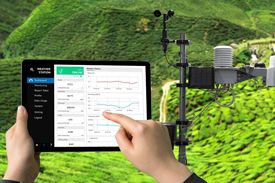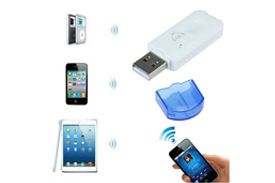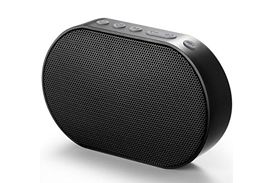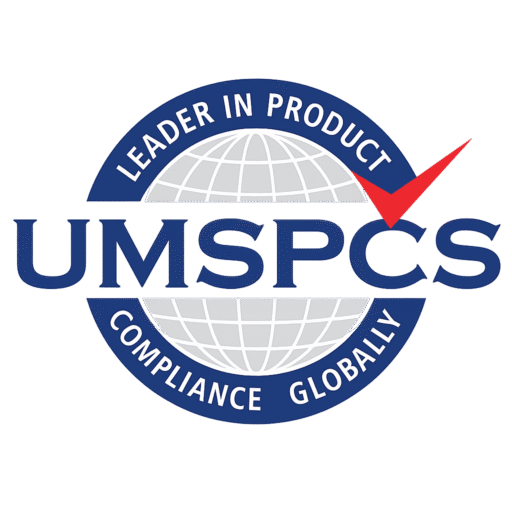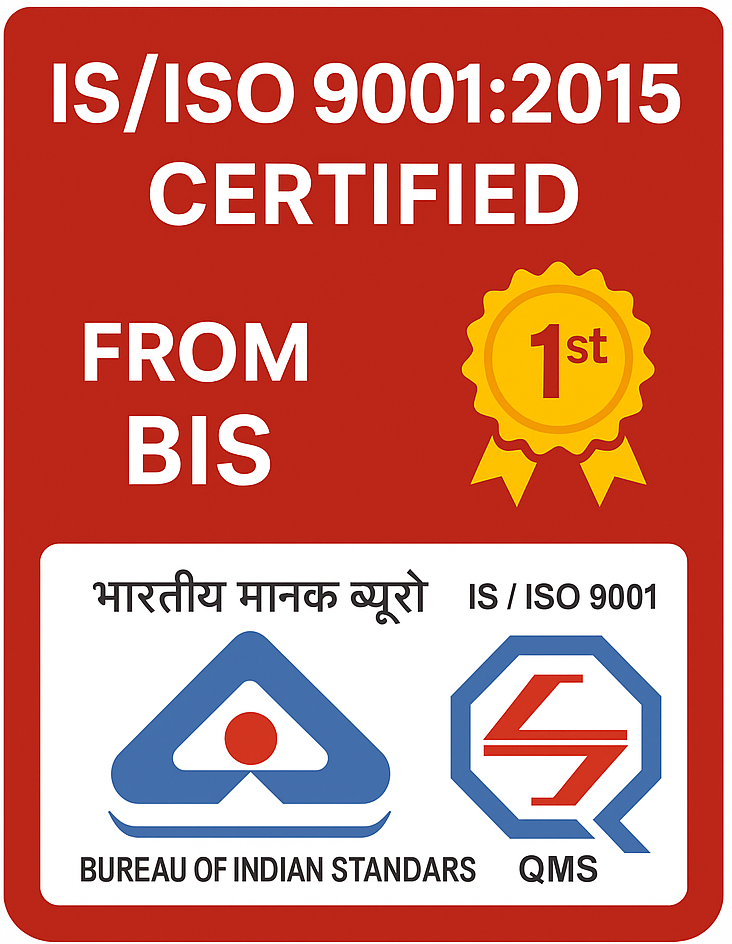
Empowering Indian Manufacturers to Meet Mandatory Quality Standards with ISI Mark Certification
BIS-ISI Certificate for Indian Manufacturer
- Introduction
- Required Documents
- Costing And Timeline
- Registration Process
- Validity And Renewal
- Product List
Are you looking for the Consultant to get the ISI mark certification for your products?
If so, then you have landed on the right destination where we will help you with every small procedure and requirement for BIS-ISI certification. Not to mention India has always been the most trusted and favorable destination for foreign as well as domestic manufacturers. Mainly because of globalization, as it unfolded the world economy for import-export, selling products in different countries, manufacturing, and many more.
In accordance with the Societies Registration Act of 1860, the Indian Standards Institution (ISI) was founded on January 6th, 1947 as a Registered Society. The organisation had a clear mandate to develop and promote Standards for adoption by Indian Industry because it was the National Standards Body of India.
India has also set some rules and standards so that consumers are able to receive trusted and quality assured products. You can never sell products directly to consumers without meeting the standards and compliances set by the Indian government. This is where the ISI mark scheme comes into the picture where manufacturers get product certification by the Bureau of Indian Standards. Today there are a total of 374 mandatory products that need ISI certification.
List of Documents Required for ISI (BIS) Certification are as under:
- Basic information about the factory and product category.
- A copy of the test report generated by the internal laboratory within a month
- Proof of the Manufacturing Unit's Address
- Trade Mark Registration, if available
- Certificate from concerned regulatory agencies for manufacturing
- Drawing of the product
- Installed Capacity at the Moment.
- Details of Raw Materials
- Details of Machines
- Layout plan of factory
- Details of Manufacturing Process
- Information on Test Equipment
- Details of quality control staff
- Factory Organizational Chart
- Location Map of Factory
Standard Costing
For a customized and attractive quotation, please contact us with your product details at
+91-8178824481, +91-9718430644
Standard Timeline
Indian manufacturers - 30 - 40 working days approx.
Process for Indian Manufacturer
Process of grant of licence is expected to be completed within 30-40 days, except for all India first case where it may take 180 days, from the date of receipt of the application provided the documentation, assessment of the unit and conformity of the product is established satisfactory at first instance during various stages.
Step 1: Customizing the Manufacturing Unit in accordance with the Applicable Indian Standard
- Identifying the Indian Standard of specific Product, Manufacture by the Client.
- Establishing In-house Lab testing facilities in accordance with the Standard's requirements.
Step 2 : Filing of the Application Form
- Arrange the BIS /NABL approved Test Report of product as per relevant IS.
- Compiling all required documents.
- Filling-up the Application Form online.
- Submission of the application fees online directly to BIS.
- Submission of Application Form along with all enclosures to the relevant Branch Office (BO) of BIS.
Step 3 : Factory visit
- A visit will be made to the factory for Inspection of the manufacturing infrastructure, production process, quality control and testing capabilities.
- Visiting team will pick the random sample(s) to be tested in BIS Approved Lab allocated by BIS office.
Step 4 : Organize the Lab Test Report (LTR)
- Submit the sample drawn by visiting team to the assigned laboratory along with the testing fee.
Step 5 : Closure of Non-Conformity (if any) and Remit the Official Fees
- Rectify the process of Factory Unit, if inspection team points out
- Submit the proof of rectification done by unit to close non-conformity (NC Closure), if any
- Pay the annual marking fees (annual license fees) to BIS.
Step 7 : Get the BIS (ISI) Certificate
- Pay the annual marking fees (annual license fees) to BIS.
- BIS will grant the ISI Certificate.
The initial duration of the licence to use the Standard Mark (ISI) shall be at least one year.
By paying renewal costs and marking fees and providing a few supporting documents, a licence may be renewed for another two to five years.
PRODUCTS UNDER BIS REGISTRATION SCHEME
As of now, There are following products which needs be registered with BIS and require BIS Registration to Manufacture/Import and sell the product in the INDIAN market. Click on below listed products for more information. Call us at +91-9560 935 898/+011-49872660 Contact or Email at contact@evtlindia.com for more details.
PRODUCTS UNDER BIS REGISTRATION SCHEME
As of now, There are following products which needs be registered with BIS and require BIS Registration to Manufacture/Import and sell the product in the INDIAN market. Click on below listed products for more information. Call us at +91-9560 935 898/+011-49872660 Contact or Email at contact@evtlindia.com for more details.
| BIS Products | |
|---|---|
| Oil Well Cement - IS 8229 | Masonry Cement - IS 3466 |
| Super Sulphated Cement - IS 6909 | Portland Slag Cement - IS 455 |
| Sulphate Resisting Portland Cement - IS 12330 | High Alumina Cement for Structural Use - IS 6452 |
| Rapid Hardening Portland Cement - IS 8041 | Portland Pozzolana Cement-Part1 Fly-ash based - IS 1489 (Part-1) |
| Composite Cement-Specification - IS 16415 | Ordinary Portland Cement - IS 269 |
| Portland Pozzolana Cement-Part 2 Calcined clay based - IS 1489 (Part -2) | Low Heat Portland Cement - IS 12600 |
| High Alumina Refractory Cement - IS 15895 | Microfine Ordinary Portland Cement-Specification - IS 16993 |
| White Portland Cement - IS 8042 | Hydrophobic Portland Cement - IS 8043 |
| AC watt-hour meters, class 0.5, 1 and 2 - IS 13010 | AC static watt-hour meters, class 1 and 2 - IS 13779 |
| Safety of household and similar electrical appliances - Electric iron - IS 302 (Part-2/Sec-3) | Room Heaters-Safety of household and similar electrical appliances - IS 302 (Part-2/Sec-30) |
| Switches for domestic and similar purposes - IS 3854 | Tungesten filament general service eletric lamps (upto 100 W) - IS 418 |
| Elastomer Insulated Cables (Part-1) for working voltages up to and including 1100 V - IS 9968 (Part-1) | Electric stoves-Safety of household and similar electrical appliances - IS 302 (Part-2/Sec-202) |
| Residual current operated circuit breakers for household and similar uses-Part 1 Circuit breakers without integral overcurrent protection (RCCBs) - IS 12640 (Part-1) | Residual current operated circuit breakers for household and similar uses-Part 2 Circuit breakers with integral overcurrent protection(RCVOs) - IS 12640 (Part-2) |
| Electrical Accessories-Circuit breakers for overcurrent protection for household and similar installations - IS 8828 | PVC insulated cables for working voltages upto and including 1100 V - IS 694 |
| AC Static Transformer operated Watt-hour and VAR-hour meters, class 0.2S and 0.5S - IS 14697 | Self Ballasted Lamps for General Lighting Services Part 1-Safety Requirements and Part 2-Performance Requirements - IS 15111 (Part-1 & 2) |
| Electric immersion water heaters-Safety of household and similar electrical appliances - IS 302 (Part-2/Sec-201) | Multi-purpose Dry Batteries ( Classification-R03, R6, R14 and R20 ) - IS 8144 |
| Milk Powder - IS 1165 | Processed cereal based complementary foods - IS 11536 |
| Follow-up Formula Complementary Foods - IS 15757 | Condensed milk, partly skimmed and skimmed condensed milk - IS 1166 |
| Sweetened ultra high temperature treated condensed milk - IS 12176 | Skimmed milk-powder, standard grade - IS 13334 (Part-1) |
| Skimmed milk-powder, extra grade - IS 13334 (Part -2) | Packaged Natural Mineral Water - IS 13428 |
| Infant milk substitutes - IS14433 | Partly skimmed milk powder - IS 14542 |
| Packaged Drinking Water (Other than Packaged Natural Mineral Water) - IS 14543 | Milk-cereal based weaning foods - IS 1656 |
| Hexane, Food grade - IS 3470 | Plastic Feeding Bottles - IS 14625 |
| Glass Feeding Bottles - IS 5168 | Oil pressure stove, offset burner type - IS 10109 |
| Multi-burner oil pressure stoves - IS 2787 | Oil pressure stoves - IS 1342 |
| Automotive Vehicles Tubes for pneumatic tyres - IS 13098 | Automotive vehicles-Pneumatic tyres for two and three-wheeled motor vehicles - IS 15627 |
| Automotive vehicles-Pneumatic tyres for passenger car vehicles-Diagonal and radial ply - IS 15633 | Automotive vehicles-Pneumatic tyres for commercial vehicles-Diagonal and radial ply - IS 15636 |
| Liquefied petroleum gas containers for automotive use - IS 14899 | Multifunction valve assembly for permanently fixed liquefied petroleum gas (LPG) containers for automotive use - IS 15100 |
| Welded low carbon steel cylinders exceeding 5 litre Water capacity for low pressure liquefiable gases Part 4 Cylinders for toxic and corrosive gases - IS 3196 (Part-4) | Welded low carbon steel gas cylinder exceeding 5 litre water capacity for low pressure liquefiable gases Part 1 Cylinders for LPG - IS 3196 (Part-1) |
| Welded low carbon steel gas cylinder exceeding 5-litre water capacity for low pressure liquefiable gases Part 2 Cylinders for liquefiable gases other than LPG - IS 3196 (Part-2) | Valve fittings for compressed gas cylinder excluding liquefied petroleum gas cylinders - IS 3224 |
| Yoke Type Valve Connection for Small Medical Gas Cylinders - IS 3745 | Welded low carbon steel cylinders for low pressure liquefiable gases not exceeding 5 litre water capacity - IS 7142 |
Refillable Seamless steel gas cylinders Part 1 Normalized steel cylinders - IS 7285 (Part-1) | Valve fittings for gas cylinder valves for use with breathing apparatus - IS 7302 |
| Welded and seamless steel dissolved acetylene gas cylinders - IS 7312 | Valve fittings for use with liquefied petroleum gas cylinders of more than 5 litre water capacity Part 2 Valve fittings for newly manufactured LPG cylinders - IS 8737 |
| Valve Fittings for Use with Liquefied Petroleum Gas (LPG) Cylinders upto and Including 5-Litre Water Capacity - IS 8776 | Low pressure regulators for use with liquefied petroleum gas (LPG) mixtures - IS 9798 |
| Clinical thermometers Part 1-Solid stem type - IS 3055 (Part-1) | Clinical thermometers Part 2-Enclosed scale type - IS 3055 (Part-2) |
Diagnostic Medical X Ray Equipment - IS 7620 (Part-1) | Mild Steel and Medium Tensile Steel Bars and Hard-Drawn Steel Wire for Concrete Reinforcement (Part 1) Mild steel and medium tensile steel bars - IS 432 (Part - 1) |
| Mild steel and Medium Tensile steel bars and Hard-Drawn Steel Wire for Concrete Reinforcement (Part 2) Hard-Drawn Steel Wire - IS 432 (Part - 2) | Stainless Steel Bars and Flats - IS 6603 |
| Bright steel bars-Specification - IS 9550 | Specification for High Tensile Steel Bars used in Pre-stressed Concrete - IS 2090 |
| Chrome molybdenum steel bars and rods for aircraft purposes - IS 963 | Steel Wire for Nipples for Spokes - IS 8564 |
| Stress-Relieved, Low Relaxation Steel Wire for Pre-stressed Concrete - IS 16644 | Trapezoidal Steel Wire for Springs Washers - IS 12262 |
| Plain Hard-drawn Steel Wire For Pre-stressed Concrete Part 1 Cold Drawn Stress-relieved Wire - IS 1785 (Part - 1) | Plain hard-drawn steel wire for pre-stressed concrete Part 2 as drawn wire - IS 1785 (Part -2) |
| Mild steel wire for cotter pins - IS 10794 | Mild steel wire rods for general engineering purposes - IS 7887 |
| Steel Wire for Reeds -IS 8566 | Half Round Mild Steel Wire for The Manufacture of Split Pins - IS 8563 |
| Tinned Steel Wire for Banding of Armatures And Rotors Part-3 Specific Requirements for non-magnetic banding wires - IS 8510 (Part - 3) | Steel Wire for Banding Of Armatures And Rotors Part-2 Specific Requirements for magnetic banding wires - IS 8510 (Part - 2) |
| Hard Drawn Steel Wire for Upholstery Springs - IS 2589 | High Carbon Steel Wire Rods - IS 7904 |
| Mild steel wire for General Engineering purposes - IS 280 | Round Steel wire for ropes - IS 1835 |
| Low Carbon Galvanized steel wires formed wires and Tapes for armouring of Cables - IS 3975 | Steel wire for mechanical springs Part-1 cold drawn unalloyed steel wire - IS 4454 (Part -1) |
| Steel wire for mechanical springs Part-2 oil hardened and tempered steel wire - IS 4454 (Part -2) | Stainless Steel wire Rod - IS 6527 |
| Specification for Mild Steel Wire, Cold Heading Quality - IS 1673 | Specification for Carbon Steel Wire for the Manufacture of Wood Screws - IS 1812 |
| Specification for Mild Steel Wire Rod for the Manufacture of Machine Screws - IS 2255 | Specification for Steel Wire for Umbrella Ribs - IS 4223 |
| Specification for Steel Wire for Staples, Pins and Clips - IS 4224 | Specification for Steel Wire for spokes - IS 6902 |
| Specification for Steel Wire ( up to 20 mm ) for the manufacture of cold-forged rivets - IS 7557 | Steel Cast Billet Ingots, Billets and Blooms for production of High Carbon Steel Wire Rods-Specification - IS 8951 |
| Steel ingots, blooms and billets for production of mild steel wire rods for general engineering purposes-Specification - IS 8952 | Specification for Steel Wire for Needles - IS 9962 |
| Specification for Low Carbon Steel Wire for Rivets for use in Bearing Industry - IS 4882 | Specification for Hard-drawn Steel Wire Fabric for Concrete Reinforcement - IS 1566 |
| Steel Wires for Mechanical Springs Part-4 Stainless Steel Wire - IS 4454 (Part - 4) | Steel tubes for structural purposes - IS 1161 |
| Steel Tubes, Tubulars and Other Wrought Steel Fittings Part 1-Steel Tubes - IS 1239 (Part - 1) | Steel tubes used for water-wells (upto 200 mm dia) - IS 4270 |
| Fusion bonded epoxy coated reinforcing bars - IS 13620 | Galvanized steel sheets (plain and corrugated) - IS 277 |
Our End To End Service Includes
Standard Identification
We help you determine the relevant IS standards for your manufactured products.
Sample Testing Support
End-to-end coordination with BIS-approved test labs for ISI sample testing.
Document Preparation
Assistance in gathering and verifying required documents for ISI mark certification.
Factory Audit Guidance
Prepare for and comply with BIS's factory inspection and audit requirements.
Application Filing
Timely online submission of ISI certification application through BIS portal.
Approval Monitoring
Regular follow-up with BIS officers and support with any clarifications.
Renewal & Maintenance
Support for ISI license renewal, product scope expansion, and compliance updates.
Other General Information
Only the following laboratories' test reports are approved by BIS:
- Laboratories that BIS has created, is maintaining, or has approved for the product. Governmental facilities that the Bureau has appointed.
- In house laboratory of manufacturer can not be considered as independent lab.
Under Scheme-IV of Schedule II, BIS (Conformity Assessment) Regulations, 2018, the Bureau may provide a Certificate of Conformity (CoC) for goods and articles (products) made in line with the precise specifications contained in the relevant Indian Standards.
CoC is necessary for stampings, laminations, and transformer cores (with or without winding). IS 10613:2014, IS 16585:2016, IS 648:2006, and IS 3024:2015 (Grain Oriented Electrical Steel Sheet and Strip), Cold Rolled Non-Oriented Electrical Steel Sheet and Strip, and IS 16585:2016 (Fe-based Amorphous Strip Provided in the Semi-Processed Condition) are among the Indian Standards covered by CoC. (Retro-Reflective Devices for Bicycles).
The following steps are necessary to get a Certificate of Conformity (CoC):
Step 1: Customizing the Manufacturing Unit to the CoC's needs
*Coils that have the ISI mark and a mill test certificate.
*Building internal testing facilities in accordance with the criteria for obtaining a CoC.
Step 2: Submitting Your Application
*Prepare the steel coils' internal test reports and MTC.
*Assembling all necessary paperwork
*Completing an application form
*straight online payment of the application costs to BIS*
*submitting paper copies of the application form and all supporting documentation to the appropriate BIS Branch Office (BO)
Examining the Application and Designating the Inspection Officer in Step 3
*All of the information and papers submitted will be examined, and any deficiencies will be mentioned.
*There will be a nomination of a BIS officer for Factory Inspection.
Step 4 : Remitting Audit Fees and Inspection Travel Expenses
*Pay the inspection audit fees.
*Obtain verification regarding BIS Inspection Officer
*Organize the visiting officer's travel, accommodations, and meals (s)
Visit a factory in Step 5
*A visit to the facility will be undertaken in order to evaluate the facilities for manufacture, the production process, quality control, testing capabilities, storage space, etc.
*The inspection officer will choose the random sample(s) to be tested using the testing facilities that are available.
Step 7 : Closure of Non-Conformity The Head, Branch Office - BIS will assess the case and make a decision about the grant of a CoC. (if any)
*If the inspection officer identifies a problem, correct the factory unit's procedure.
*To close a non-conformity (NC closure), you must submit documentation of the unit's corrections. Payment should go into a BIS account.
Separate applications must be submitted for each product and each plant location in accordance with Indian Standards.
Within one month of the date the test result was issued, the tested samples must be returned. No claims will be considered once the lab reserves the right to discard the sample in accordance with its policy after one month.
Additionally, the sample could sustain entire or partial damage while being tested. Any claim in this regard will not be considered by Lab or Evtl India.
During the factory tour, the BIS team shall analyse and confirm the following:
- Information on Calibration Certificates for Testing Equipment and Quality Control Personnel
- Copies of the test certificates for the raw materials, where necessary, to confirm compliance with the necessary product standard requirements
- Drawing of the product's and/or its components, as appropriate, as samples general state of cleanliness
- product storage areas, testing laboratories, etc
- Location Factory floor plan
A copy of the contract or consent letter from the outside laboratory for which subcontracting arrangements have been arranged for tests that are allowed to be outsourced and are not readily available from the manufacturer Inspection and Test
- Plan proposed to be followed
- Subjective requirements like – workmanship, visual characteristics, surface defects, description, taste, flavor etc. shall be checked in the factory
- In case of bulkier products, the dimensional measurements and other tests, for which complete product cannot be drawn and sent for third party testing (i.e. steel plates, sheets, steel pipes etc.) shall be carried out during factory testing
- If, during the factory testing, any non-conformity is observed, no sample shall be drawn for testing in Third Party Laboratory. The applicant may be advised to carry out improvement, which will be verified through another inspection and factory testing
The BIS awards the ISI Mark following a successful evaluation of a manufacturer's manufacturing infrastructure, production process, quality control, and internal testing capabilities. These are discovered by going visiting the manufacturing facility. Testing in an independent laboratory, testing on-site at the producer, or a combination of the two is another way to determine whether a product complies with the pertinent Indian Standard(s).
For ISI Mark Certification, Indian manufacturers have two choices:
Choice 1
The process of granting a licence is anticipated to take 120 days from the date of application receipt to complete, with the exception of the first case involving all of India, which may take 180 days, assuming that the documentation, unit assessment, and product conformity are all initially determined to be satisfactory during various stages.
Step 1: Customizing the Manufacturing Unit in accordance with the Applicable Indian Standard
- Identifying the relevant Indian Standard
- Establishing internal testing facilities in accordance with the Standard's requirements.
Filling out the application form is step two.
- Set up the product's internal test report in accordance with the relevant IS.
- Assembling all necessary paperwork
- Online application form completion
- Straight online payment of the application costs to BIS
- Submitting paper copies of the application form and all supporting documentation to the appropriate BIS Branch Office (BO)
Step 3: Remitting Audit Fees & Inspection Travel Expenses
- Pay the inspection audit fees.
- Obtain verification regarding BIS Inspection Team
- Plan the team's travel, accommodations, and meals.
Step 4: A factory visit will be performed to evaluate the production process, manufacturing infrastructure, quality control, and testing capabilities.
- The random sample(s) for testing in BIS will be chosen by the visiting team.
Step 5: Arrange the Lab Test Report after the BIS office has approved the lab (LTR)
- Submit the sample taken by the visiting team along with the testing cost to the designated laboratory.
Step 6: Complete any remaining non-conformities and pay the required fees
- If the inspection team notes something, correct the Factory Unit's process.
- Send the unit's documentation of any corrections made in order to close any non-conformities (NC Closure).
- Pay BIS the yearly marking fees (annual licencing payment’s)
Get the BIS (ISI) Certificate in Step 7.
- After documentation is submitted at steps 4 through 6, the licence will be issued Option 2
If the factory visit goes well and the sample is determined to be in compliance with the applicable Indian Standard(s) at the outset, the licence grant process is anticipated to be finished within 30 days of the application's receipt.
Step 1: Customizing the Manufacturing Unit in accordance with the Applicable Indian Standard
- Identifying the relevant Indian Standard
- establishing internal testing facilities in accordance with the Standard's requirements
Step 2 : Sample Testing
- Set up the necessary certificate for the raw material (MTC)
- Test the product sample at a BIS-approved testing facility.
Step 8: Resolving the Inconsistency (if any)
- If the inspection team notes something, correct the Factory Unit's process.
- Provide evidence of any rectifications made by the unit to close any non-conformities (NC closure).
Note: The licence must be suspended right away in the event that any samples taken during the factory visit under Option 2 are not in compliance. The licensee must make the necessary corrections, advise the Bureau of them, and indicate that they are prepared to provide new samples that have been produced as a result of those corrections. In these situations, only conforming Testing Reports of the fresh samples from a BIS Recognized Testing Laboratory will be taken into consideration for the revocation of suspension.
If a new sample taken by the Bureau for the purpose of considering lifting the suspension reveals non-conformity in laboratory testing, or if the licensee fails to provide updated samples or provide notice of corrective actions within 30 days of the date of the suspension, the licence will be processed for cancellation.
ISI Registration




